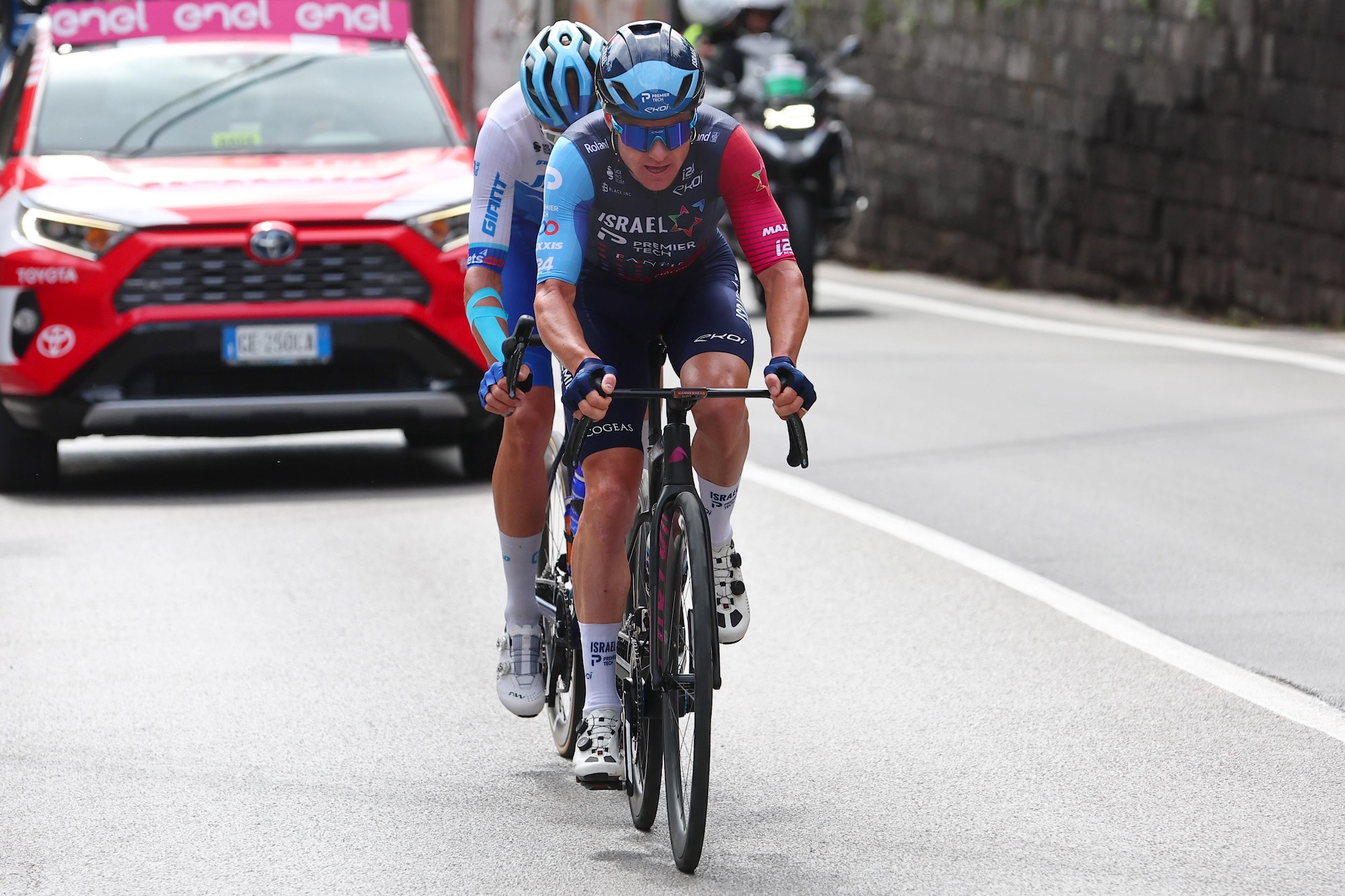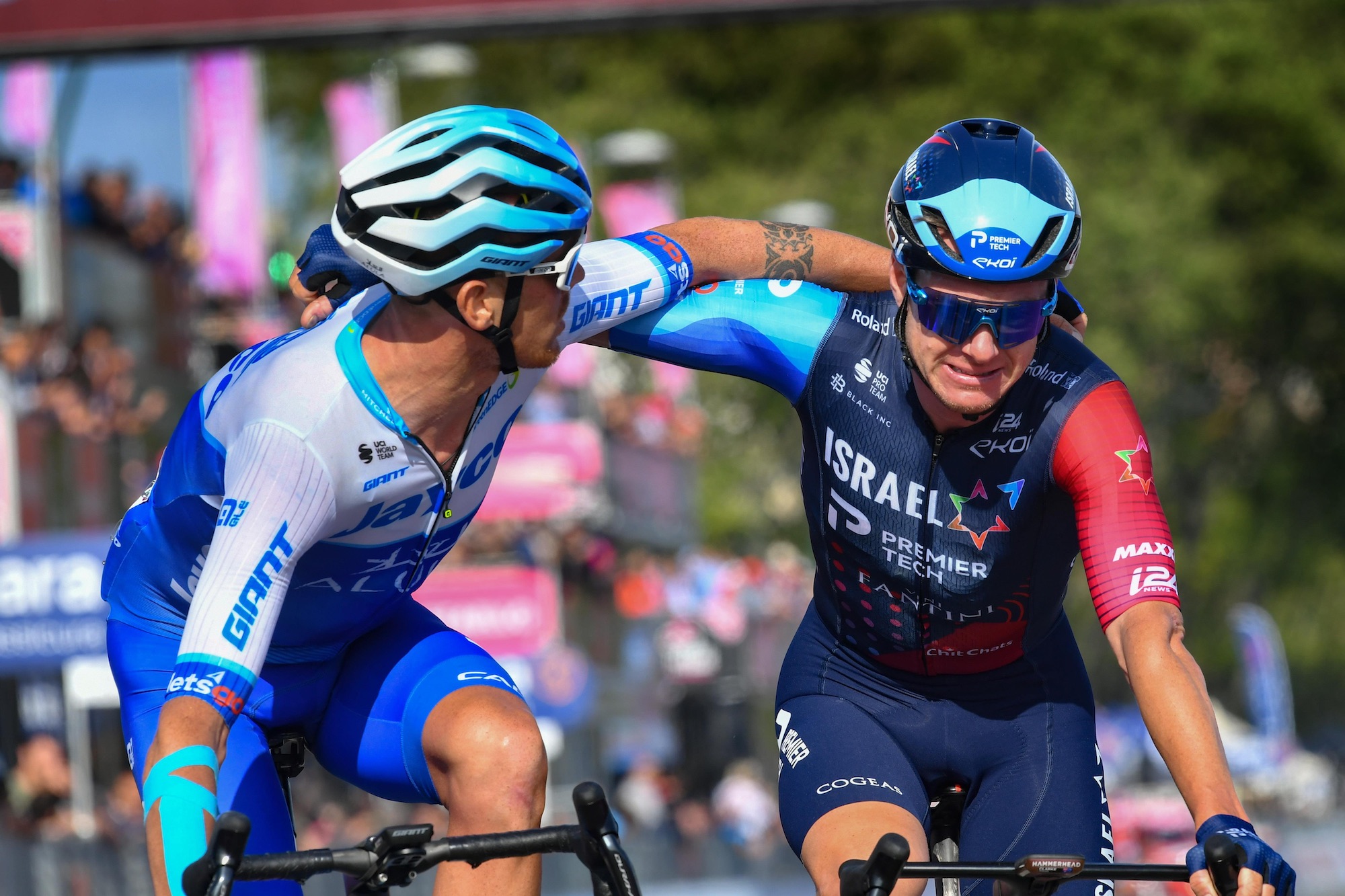There are few greater thrills in bike race viewing than a breakaway surviving into a flat final kilometer with the peloton breathing down its neck behind.
Those days that on paper look straightforward enough, at least for those watching on a screen than from a saddle. A couple of lumps and bumps en route, an expected fight between the sprinters for stage honours, and a pause in the GC battle as hopefuls and contenders recharge their batteries.
But then the riders left dangling out front are just a little too far away, and the pendulum seemingly swings in their favour. You, and other bike fans around the world, silently willing them along, to be the latest to tear up the script given to them when they were allowed off the front a few hours earlier.
For Simon Clarke and Alessandro De Marchi, the duo who remained up the road on Stage 6 of the Giro d'Italia after their original escaped quintet disintegrated on the roads around Napoli, their experience meant they were never given an advantage of more than two minutes.
In hindsight, this was a wise decision from the peloton, who struggled in the closing kilometers to bring the pair to heel, alarm turning to desperation as the remaining road dwindled and the gap stubbornly refused to reduce at the requisite rate for a catch to be made.
A day out front plugging away versus domestiques receiving barked orders from the team car to chase until their legs fall off provides the perfect crescendo to the plucky underdog story. Suddenly, the gap plummets as the speed of the bunch ramps up. Soon, they come into view, and those ahead look behind and get the first glimpse of their colleagues in hours.
Usually, this is the death knell of the implausible becoming impossible. The wind is knocked out of their sails at last before a new whooshing as the bunch passes to take what they believed was always rightfully theirs in the first place.
Clarke and De Marchi, after being caught with 200 meters to go, still crossed the line together after Mads Pedersen completed his set of Grand Tour stage victories – a feat Clarke could have also achieved today had the finish line been just a bit closer.
Instead, a consoling arm around the shoulder from De Marchi, who Clarke himself was in turn consoling, the Italian having twice finished second in a stage at his home Grand Tour in 2012 and 2021. Future chances of Giro stage honours are ever-dwindling for both, at 36 years old.

"Devastating," was Clarke's reaction to being caught with the finish line almost in view. "It's not nice to lose in that way, getting caught so close ... I'd probably prefer to be caught with 10 k to go than 200 meters but you can't win them all. If you don't try you'll never know. Tomorrow is another day.
"At the end of the day there's always going to be a moment where you decide to stop pulling, you can't just pull until 10 meters to go," the Australian continued as to how the cohesiveness of his and De Marchi's collaboration fell apart with 500 m until the line. "We needed 10 or 15 more seconds, it was just the way it was."
Clarke had seemingly already made his peace with the outcome. Maybe De Marchi had been caught by the TV cameras before he'd been afforded the chance to compose himself, but his reaction was much more forceful.
"I'd like to see a youngster to give it everything until the end," the Jayco-AlUla rider said, perhaps unfairly, of how his original breakaway companions fell away. "Of course, anybody going [back] at 40 km to the finish and not able to follow us that's a bit disappointing. But yeah disappointed that it was just two of us until the end there."
Maybe another rider would have given the breakaway effort the extra 10 or 15 seconds it needed, or maybe it would have broken the rhythm of the group, saving Clarke some heartache by getting caught with 10 km to go. There are many ifs, buts, and maybes in bike racing, and a breakaway caught at the line is almost certainly the most heartbreaking.
Did we do a good job with this story?


